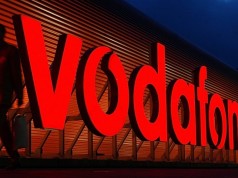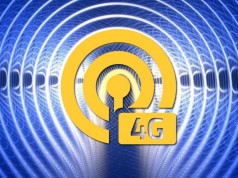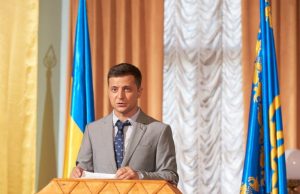In the present year 2017, we run the risk of seeing another telecom market repartition, the most significant one since the first half of the “Noughties”, when UMC and Kyivstar pumped together the money of Ukrtelecom’s subscribers.
In the present year 2017, we run the risk of seeing another telecom market repartition, the most significant one since the first half of the “2000s”, when UMC and Kyivstar pumped together the money of Ukrtelecom’s subscribers. Back then, the main repartition tools were the political willpower of the first person, interested in the future market leader, on the one hand, and a number of legislative initiatives that drastically changed the rules of game, on the other hand.
FLIP-FLOP
Since the autumn of last year, the Ukrainian authorities have been extremely active on the telecom market. The areas of this activity are often opposite to the actions and declarations in early 2016.
The consideration of the deal on buying operator Trimob (the former mobile unit of Ukrtelecom, put up for sale in 2012) by MTS-Ukraine, initiated in March 2016, suddenly halted in mid-October. Despite the fact that the mobile market has only six operators and has long been studied up and down, the Antimonopoly Committee of Ukraine (AMCU) considered the impact of that deal on the market for half a year, and then rescheduled its decision for an indefinite period. After that, it was the State Property Fund (FGU) that joined the game and MTS-Ukraine withdrew its application, claiming it impossible to agree with the Fund.
Roughly at the same time, the National Commission for the State Regulation of Communications and Informatization (NCCIR) revised its opinion on one of the most scandalous point in the Ukrainian telecom industry. In 2011, the company MMDS-Ukraine, owned by Rinat Akhmetov, was non-competitively granted a license for inconceivable 200 (!!!) MHz of radio broadcasting capacities, ideal to deploy 4G networks. For mobile communication, the radio broadcasting capacity performs the same role as the land for a construction business or the mineral deposits for a Mining and Metallurgical Company. The fee, paid by MMDS Ukraine for using that limited natural resource, was near 1000 (in words – one thousand) times less than those fees collected from mobile operators.
The disputed frequencies are definitely required to hold a tender for 4G-licenses in 2017, prescribed by President’s decree. First, the NCCIR tried to revoke the license on its own. After Mr. Akhmetov’s lawyers successfully challenged those decisions in court, the National Commission announced its intentions to make a decisive move and to increase sharply the fee for disputed frequencies. That meant checkmate, but in the autumn something went wrong.
Now, this is about the fact that part of the money earned from selling 4G licenses to the Big Three operators will be allocated to a “fair compensation” to the current users of frequencies. We are talking about some UAH 550 million. This is approximately 100 (in words – one hundred) times more money that the government received for those frequencies from MMDS Ukraine.
A particular attention is drawn to the government assistance to a variety of initiatives promoted by the “eternal third” of the mobile market, actually known as lifecell. Let us enumerate just some of them as follows:
- As part of the 4G implementation team, lifecell lobbies its version of frequency efficiency criteria. Based on these criteria, MTS-Ukraine and Kyivstar use frequencies inefficiently and are obliged to share them with the Turks.
- The study conducted for the working group contains a requirement to increase the frequencies fee for MTS-Ukraine and Kyivstar by two to four times, compared to the second-tier players, including lifecell.
- Historically, Kyivstar concentrated up to 50% of frequencies within the band of 1800 MHz. Insisting on such an unfair allocation, NCCIR raises the issue of withdrawing excessive frequencies from the company to allocate them to lifecell.
- At the suggestion of lifecell, the government agencies are about to introduce a number of innovations on the market, which directly affect operators and subscribers. In particular, it is supposed to put an end to providing services without subscriber identification. Simply put, it is actually required to indicate the personal name, address and passport of everyone and their dog, and not just subscribers.
- The government is very aggressive while regulating the terms of mutual settlements between operators and is going to enlarge the powers of NCCIR in terms of retail tariffs regulation. One of the goals of such regulation is declared giving up free intranet.
- Lifecell is as never before close to its hidden dream, i.e. the legislative consolidation of its privileged position of “new player”, which provides for many preferences.
Most of these innovations are reflected in the Draft Law on Electronic Communications, which has estimated very strong chances to be adopted. Despite the fact that many of them are the subject of sharp disagreements between market players, this time the balance tips towards the weakest player. Lobbying for lifecell interests has never been as intense and effective as now. This cannot help but draw attention and put the question: “And what naturally happened in 2016?”
SOME OF LITERACY
It should be realized that in actual Ukraine the national telecom policy is a jurisdiction of corporate governance. For 12 years of his carreer as external consultant and public expert in this field, the author has observed only three decision-making drivers, with very few exceptions: a) the interests of companies as economic entities, b) the interests of companies’ owners (including the top public officials), c) the lobbying rent of the top-management of the public authorities (the same corruption).
The rare exceptions represent decision-making for PR purposes. For example, against the events involving 3G licenses, the interests of Rinat Akhmetov and Petro Poroshenko came into conflict. The first one, leading from behind the Prime Minister Arseniy Yatsenyuk, was tackling the problem to keep the value of Trimob, possessing an exclusive license for those frequencies. As for the second one, his Office represented by Dmitry Shimkiv, convinced him that the image of the very person who granted 3G to the country was much more important. As a result, the long-suffering licenses were finally issued, despite the sabotage of government agencies.
The times when the top public officials disturbed each other to build the European future have already passed. The Prime Minister is a man of President, and they together supervise effectively all the executive bodies. Therefore, the author deems it necessary to expressly indicate that whether it is about NCCIR, AMCU, FGI or other institution, we are talking about the consolidated position of the same persons. More specifically, one person.
QUI PRODEST?
But back to the question: “In whose behalf are these changes?”
Maybe, in behalf of mobile subscribers, the notorious “little Ukrainians”? The question is rhetorical. The relevant public authorities have truly illimitable opportunities to take care of subscribers in a quick, near-costless and effective way. However, they either ignore these opportunities, or use them selectively and inconsistently.
In the case of MMDS-Ukraine, the situation, at first glance, looks like a usual lobbying of Rinat Akhmetov’s interests. As it took place in 2014-15. However, Mr. Yatsenyuk, who shielded Mr. Akhmetov, is out, and Mr. Groisman is entirely under the control of the President. As far back as a year ago, the authorities represented by NCCIR intended to withdraw unused frequencies without any compensation. There are no obvious reasons for a 180-degree turn. Moreover, blocking the deal with Trimob directly hits Mr. Akhmetov’s interests. A contradiction is clear.
In the case of lifecell, the seemingly obvious guess about the activity of its lobbyists also triggers questions. None of the author’s respondents among top-managers of the operating companies believe that the Turks have found money and competent people to make such a decisive breakthrough. The value of the decisions in question is too high, and it is necessary to agree on them at the highest level. For twelve years on the Ukrainian market, having a partner among the men of influence in the country, the Turks have not advanced one jot in the matter of gaining desired preferences.
Are the authorities likely concerned about filling the budget? The story with frequencies for MMDS proves that this aspect is out of their interest.
There remains the last option, which was mentioned, however, the first one by author’s interlocutors.
POROSHENKO AND TELECOM
MTS-Ukraine and Kyivstar call Petro Poroshenko the very sponsor and the main beneficiary of the upcoming market repartition. It is worth recalling that Mr. Poroshenko is no stranger to the matter. Back in 2005, it was him who was assigned by the newly elected Viktor Yushchenko “to settle the issue” with frequencies for the still state monopoly Ukrtelecom. That was about issuing a license to the state-owned company for frequencies to build 3G network. That had to improve its attractiveness before privatization. The frequencies were supposed to allocate without any tender, for cheap (about USD 30 million) and exclusively for five to seven years.
Still not deprived of the Maidan illusions, the telecom community bristled. At the same time, in the early spring of 2005, the first legitimate board of the National Commission for the State Regulation of Communications (NCCR) was appointed in Ukraine. The appearance of the NCCR was regarded as a serious breakthrough of Ukraine both nationwide and abroad, which put it along with the EU countries, being the first in the post-Soviet space. The members of the Commission were definitely against the President’s decision, which was not only within their competence, but also was legalized with lots of procedure violations.
The mission of making the unbowed obey was entrusted to the energetic President’s fellow, one of the “beloved friends”. According to the former members of the Commission who talked about those events, Mr. Poroshenko acted so severely and offhand that NCCR resulted broken morally by the summer of 2005, and came back to serve the top-level whims and “wishes”.
In the spring of last year, the market evidenced a revival due to the efforts to create a new market player. Those efforts involved top-figures like the long-time President of Kyivstar Igor Litovchenko. The idea, repeatedly featured by the author (for example, here and there), comes down to bringing together the second-tier assets, backing them with a lobbying power and arranging market repartition in this way. The owner of the newly created telecom holding should be President Poroshenko.
This version does not look like something incredible. Similar processes affect, for example, the banking sector, where the outstanding business proficiency of the primary shareholder of the International Investment Bank was unlocked immediately after ascending to the throne. The telecom market, especially the mobile one, is organized as communicating vessels. Given the oligopoly, someone loses and the other one gains.
The coming repartition is far not the first one on the market. The Ukrainian telecom industry has experienced several consolidation stages as follows:
- The merger of the Golden Telecom Company by the Ukrainian Radio Systems (TM Beeline), with further takeover of the merged company by Kyivstar.
- The fusion of CDMA operators Velton-Telecom and ITC (TM CDMA UKRAINE) with their subsequent merger by the Intertelecom.
- The fusion beneath the same roof of fixed-line operators Ukrtelecom and Vega, as well as the mobile operator Trimob.
Suffice it to recall that in the mid-2000s, there were thirteen (!!!) mobile operators on the market, who used four incompatible technological standards.
WHAT COMES NEXT?
The zeal of public bodies is well known in view of the political willpower. The recent example of eagerness’ winning the mind is the situation with payments for international calls, the so-called interconnect. At the suggestion of NCCIR and the Ministry of Economic Development and Trade, telecom operators reduced their currency earnings amid a gradual increase in currency expenses.
There are no and cannot be safety tools to protect the market from the arbitrary rule of the top persons. The market players should get prepared to another drastic change in the rules of game. No big deal.

















